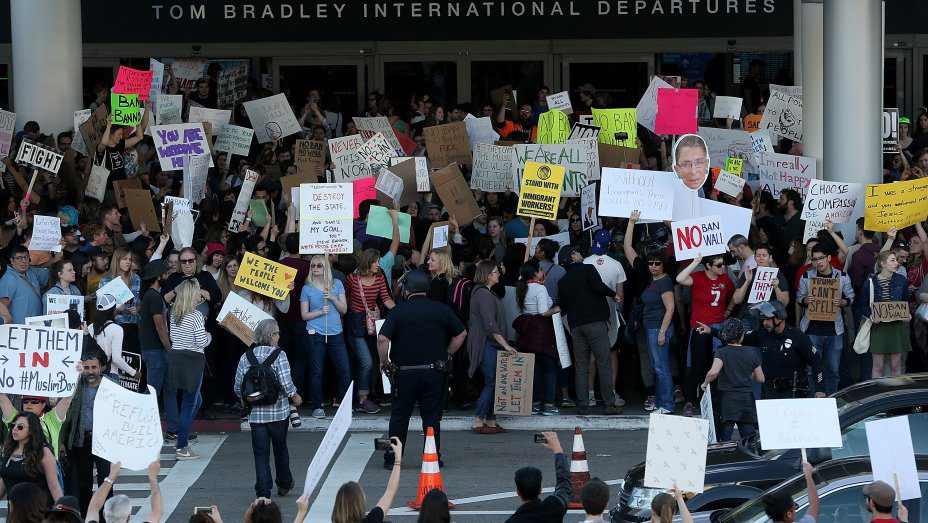“We can’t suspend our rational minds while a schlockmeister-in-chief turns our foreign policy into the tacky ‘Plan 9 From Outer Space,'” writes the cultural commentator and NBA legend.
What makes the haunted house genre so scary is that the hapless victims are trapped in a confined space from which it is almost impossible to escape — a house, a spaceship, the woods, the ocean — and they are being stalked by a terrifying entity that is malevolently irrational and supremely powerful. There can be no appealing to the beast logically or emotionally, no defeating it through sheer force. To quote Yeats, it is as “pitiless as the sun.”
For civilized societies, the absence of reason and compassion is the very definition of pure evil because it is a rejection of our sacred values, distilled from millennia of struggle. The manifestation of this evil can be supernatural (Poltergeist, The Conjuring), natural (Jaws, Alien) or a twisted version of humanity’s worst behavior (Friday the 13th, Nightmare on Elm Street). President Trump’s recent executive order to bar citizens of seven Muslim-majority countries has resulted in Muslim-Americans feeling as if we’re now trapped in a menacing haunted house battling a powerful but irrational specter. There is no escape, nowhere to hide, no one believes us when we tell them about the horrible noises (“Grab them by the pussy”), and no help from the authorities is coming because they’re already possessed and mindlessly doing the creature’s bidding.
The weakness in every horror movie is motivation. Do you really expect us to believe the ghost wants your severed head because someone dropped them down a well? Or that a shark wants to eat you out of revenge? Coming up with a believable motivation for the relentless entity often results in contrived and convoluted reasoning that forces the audience to struggle with our willing suspension of disbelief. President Trump’s Muslim ban continues this challenge to our suspension of disbelief because we can find no rational motivation for the scary creature’s horrific actions. His ban cites 9/11 as its rationale, yet the ban doesn’t include any countries that those hijackers came from (nor any countries that Trump does business with). Refugees who have already been vetted — which can take two to three years of intense scrutiny — were interrogated about their attitudes toward Trump. Some were forced to show officials their social media. Some were handcuffed without provocation. Even the federal government’s own lawyers, sent to justify the ban in court in response to an ACLU challenge, were unable to find legal support. When the federal judge questioned Eastern District U.S. Attorney Susan Riley on the government’s reasoning, she admitted, “[W]e haven’t had an opportunity to address the issues, the important legal issues.” When Riley was unable to even estimate the number of people detained, the judge said that was exactly why she would grant the ACLU’s request for a stay.

